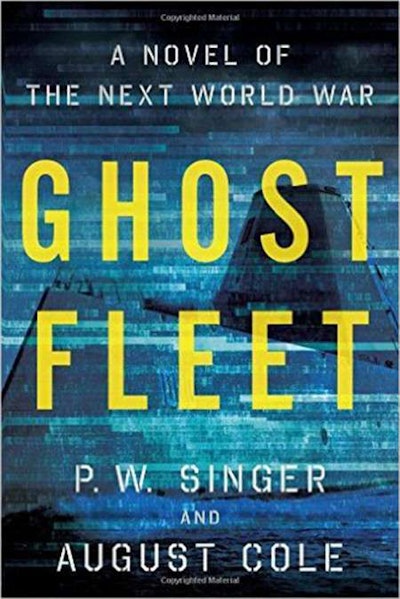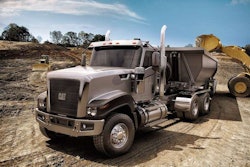
Caterpillar made news last week with the announcement of the split between the company and Navistar relative to its CT series of on/off-highway trucks (pictured above: The CT681 announced last year, in a dump application). Overdrive/CCJ equipment editor Jack Roberts talked to reps of the yellow-iron specialist last week, who revealed that a 15-liter engine for the CT series of trucks was in the works. Catch his full piece on the interview at this link, but for those of you hopeful for Cat’s re-entry into the on-highway engine market, know that you won’t find what you’re looking for. As Roberts wrote:
Noting that Caterpillar has “no plans” to re-enter the on-highway engine business, [Cat’s Chris] Chadwick says for now, Caterpillar will continue to spec the Navistar-built CT13 13-liter diesel engine for its C-Series trucks. “The big hole for us right now is obviously the lack of a 15-liter engine,” he says. “But we have a strategy in place to add a 15-liter option before year’s end and will offer more details on that in the fall.”
Stay tuned, and click here for more from Roberts.

Not much, if you don’t count what current global distribution models have to do with some of the events described therein…. Nonetheless, when I heard about the new “ghost fleet” novel from P.W. Singer and August Cole, I thought immediately of the somewhat recently-released comics series of the same name, which regular readers will recall from this linked coverage. The comic brings to hyper-reality a quasi-myth based in some reality of its own of ultra-clandestine military haulers — a sort of “X Files” of the trucking world, as it’s been described.

The new book’s subtitle, however, “A novel of the next World War,” speaks to a different sort of “ghost fleet.” Authors Singer and Cole are well-known commodities in the community of U.S. defense-policy wonks, and their “ghost fleet” seems to refer at once to the nebulous nature of what will be the primary tools of war-fighting in any conflict between major powers in the relatively near future (think “cyber warfare and hacking, weaponized space stations, unmanned aircraft, robots, railguns, experimental ships,” as noted Huffington Post reviewer David Eisler in this discussion of the book) as well as a fleet of decommissioned U.S. Navy vessels brought back into service in the book as the authors game out a U.S. v. China/Russia war scenario in the fiction.
For speculative-thriller fans in the audience, I’d say it’s probably worth a look. I’ll say more when I’ve run through my ebook copy if so. The book is available in hardcover, ebook and audio formats.
Those interested can catch an excerpt as well as an interview with the authors at the On Point Radio website.









